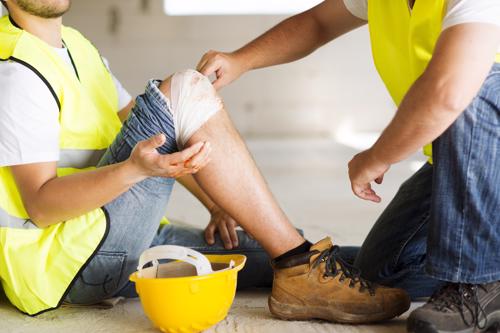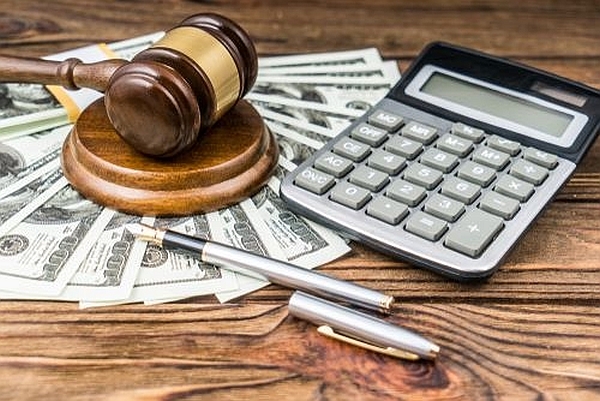Getting into an auto accident will shake you up and put you in a position where it’s difficult to think of everything you need to do, both because the law requires it and because you’ve got an upcoming auto accident claim to think about. Here, we’ll discuss all of the things that you need to do, but might not be thinking about in the immediate aftermath of an auto accident.
You Are Legally Required to Report Most Georgia Auto Accidents
In any auto accident in which someone is injured or killed, or any auto accident that involves $500 of damage or greater, you are legally required to report the incident to the police (see http://law.justia.com/codes/georgia/2010/title-40/chapter-6/article-12/40-6-273). You then have to remain on the scene until the police arrive and inform you that you are allowed to leave. The only exception here is if you are injured to an extent that requires emergency medical attention, in which case, you will be transported away from the scene to the hospital via ambulance. If your injuries do not require immediate medical treatment, or if you are not injured, then you must stay at the scene of the accident and exchange contact information and insurance information with any other individuals involved in the accident.
You May Be Legally Required to Move the Vehicles to Safety
It is your responsibility to move the vehicles to a safe position after an auto accident, in most cases. The exceptions arise when it is not possible or safe to do so. For instance, if you are seriously injured, you would not be expected to do this. If you are not injured, but others are, then you should try to help them by moving their vehicles, as well, if possible. If a driver is seriously injured or killed, then you should not move their vehicle. If you are a passenger in the vehicle and do not have a driver’s license, then you are not expected to move the vehicles. In cases where it is not possible or appropriate to move vehicles out of the line of oncoming traffic, you should turn on emergency lights and make all appropriate efforts to warn oncoming traffic of the accident in an effort to prevent further accidents.
You Are Legally Required to Provide Your Auto Insurance Information
In any auto accident, you need to exchange insurance information. When the police arrive at the scene of the incident, they will ensure that this is done. You will need to provide the contact information of the person who owns the vehicle, whether or not that is yourself, the license number of the vehicle, and name of the auto insurance carrier. If you don’t have this information and/or are unable to provide it, you will face further consequences.
It Is Important to Notify Your Own Insurance Company of Any Accidents
Whenever you get into an auto accident, you should contact your own auto insurance company to let them know about it. This is not a legal requirement, but a contract requirement, because you have made an agreement to do so by signing the contract provided by your auto insurance company at the time that you purchased the policy. Failing to do so would violate your contract and could result in a disruption in your auto insurance coverage.
It Is Important to Gather Evidence At the Scene of the Accident
You are not legally required to gather evidence at the scene of the accident. The police will do this to investigate the incident, and it will not be your responsibility to handle that investigation. However, this does not mean that it isn’t wise, important, and in your best interests to gather as much evidence as you can. When it comes to proving liability and damages in your auto insurance claim, you’ll find that having all the evidence you can get is essential.
You can gather evidence by taking photos of the scene of the accident, of the position of the vehicles (before they are moved), of any relevant traffic signals, any property damage, and any injuries that were caused by the incident. You can then take notes about what you remember about the auto accident. The sooner you do this, the clearer your memory will be. Getting the contact information of any witnesses will also be helpful.
It Is Important to Watch What You Say and Do After the Accident
Legally, you can say and do whatever you like, as long as it doesn’t involve harassment or harming someone else. However, if you say everything you’re thinking and act without careful forethought, you could harm your own case. This means that you should not comment on who was at fault for the accident at the scene. You should not admit to any fault or accuse anyone else of being at fault. You’ll have to give a statement to the police, but you don’t have to comment on anything that you might not be completely sure of. To do so could harm you later. When you are contacted by the other driver’s auto insurance policy, you should decline to speak with them or provide a recorded statement until you’ve spoken to an attorney.
Further, you should be careful about what you do after an accident when it comes to sharing information with others via text, social media, email, or other mediums. Although you are probably not facing criminal charges, the concept of ‘anything you say can be used against you’ still applies, just in a different setting. Anything you say can be used against you when you attempt to prove liability for the accident and the value of your damages.
It is Important to Contact an Auto Accident Attorney Right Away
You are not legally required to enlist the help and representation of a Georgia auto accident attorney when pursuing your claim for damages. However, you would be wise to do so. An auto accident attorney from the Law Office of John B. Jackson & Associates will provide a free consultation of your case and assist you with proving liability and the value of damages. With an attorney, you will typically recover more than three times what you could recover without an attorney. For this reason, you should not worry about affording an attorney. An determined car accident attorney in Carrollton, GA is going to work on a contingency fee basis, so they only get paid if they help you to recover compensation, and they will help you recover maximum compensation.





